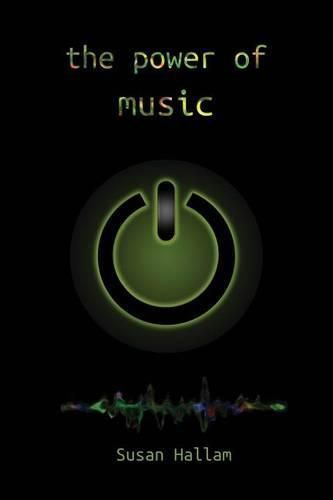Readings Newsletter
Become a Readings Member to make your shopping experience even easier.
Sign in or sign up for free!
You’re not far away from qualifying for FREE standard shipping within Australia
You’ve qualified for FREE standard shipping within Australia
The cart is loading…






There is accruing evidence which indicates that actively making music can contribute to the enhancement of a range of non-musical skills and lead to other beneficial outcomes. Research continues to explore the circumstances under which these benefits may occur. A recent review of the evidence from neuroscience suggests that early engagement may be important (before the age of seven), the length of musical engagement and commitment to it, the type of training, and the instrument learned. The quality of teaching is also crucial as to whether any benefits are realised. When teaching is poor there may be no benefits and negative outcomes. The common characteristics of musical programmes which are beneficial are emerging. They need to be highly interactive and enjoyable with opportunities for: developing new skills and performing; acquiring cultural capital; developing interpersonal bonds and solidarity in pursuing shared goals; on-going intensity and frequency of contact; developing mutual respect; and recognition and rewards for excellence. Receiving positive affirmation from others relating to musical activities, particularly performance is crucial in enhancing self-beliefs whatever the age of the participants. If performances are in high status cultural venues the impact is enhanced. The research undertaken to date suggests that: - active engagement with making music should start early for the greatest benefits to be realised; - engagement needs to be sustained over a long period of time to maximise the benefits; - the activities need to include group work; - opportunities need to be available for performance; - the quality of teaching needs to be high; - the curriculum needs to be broadly based including activities related to pitch and rhythm, singing, instrumental work, composition and improvisation, and the reading of notation; - to have a positive impact on disaffected and at-risk young people, the musical activities need to be in a genre with which they can relate.
$9.00 standard shipping within Australia
FREE standard shipping within Australia for orders over $100.00
Express & International shipping calculated at checkout
There is accruing evidence which indicates that actively making music can contribute to the enhancement of a range of non-musical skills and lead to other beneficial outcomes. Research continues to explore the circumstances under which these benefits may occur. A recent review of the evidence from neuroscience suggests that early engagement may be important (before the age of seven), the length of musical engagement and commitment to it, the type of training, and the instrument learned. The quality of teaching is also crucial as to whether any benefits are realised. When teaching is poor there may be no benefits and negative outcomes. The common characteristics of musical programmes which are beneficial are emerging. They need to be highly interactive and enjoyable with opportunities for: developing new skills and performing; acquiring cultural capital; developing interpersonal bonds and solidarity in pursuing shared goals; on-going intensity and frequency of contact; developing mutual respect; and recognition and rewards for excellence. Receiving positive affirmation from others relating to musical activities, particularly performance is crucial in enhancing self-beliefs whatever the age of the participants. If performances are in high status cultural venues the impact is enhanced. The research undertaken to date suggests that: - active engagement with making music should start early for the greatest benefits to be realised; - engagement needs to be sustained over a long period of time to maximise the benefits; - the activities need to include group work; - opportunities need to be available for performance; - the quality of teaching needs to be high; - the curriculum needs to be broadly based including activities related to pitch and rhythm, singing, instrumental work, composition and improvisation, and the reading of notation; - to have a positive impact on disaffected and at-risk young people, the musical activities need to be in a genre with which they can relate.